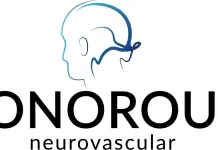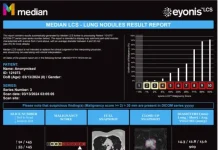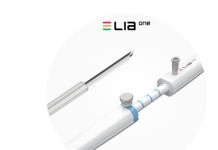As the generative artificial intelligence race in healthcare continues with big tech companies jumping into the space, startup Abridge nabbed several notable partnerships to expand the use of its gen-AI-powered medical note-taking service.
Epic will integrate the company’s generative AI for clinical documentation into its electronic health record (EHR) workflow as part of the tech giant’s new “Partners and Pals” program. That program will be introduced during the company’s annual users’ group meeting in Wisconsin next week.
Clinical documentation company Nuance and survey software company Press Ganey will be announced as the first “partners” program, while Abridge was tapped to be the first “pal,” an Epic spokesperson confirmed.
“This program is just one component of a much broader approach to provide pathways for any and all vendors to connect with Epic provider organizations,” the spokesperson said. Pals is part of that program and focuses on early-stage products with promising technology.
Epic also is working with Nuance, Microsoft’s speech recognition subsidiary, to integrate its Dragon Ambient eXperience Express into its EHR software.
The collaboration will make Abridge’s documentation solution available for integration in Epic’s clinical workflows, giving providers the ability to generate real-time, structured summaries of their patient conversations using AI and ambient technology, according to Shivdev Rao, M.D., co-founder and CEO of Abridge, a practicing cardiologist who previously served as an executive at UPMC’s venture arm.
Abridge launched in 2018 and uses AI to increase the speed and accuracy of medical note-taking, leveraging a proprietary dataset derived from more than 1.5 million medical encounters.
“The Partners and Pals program creates new value for healthcare by curating unique collaborations,” said Alan Hutchison, vice president at Epic in a statement. “Epic works with companies like Abridge to develop deep integration for their products and services, helping them innovate quickly for the benefit of more patients and providers.”
Atlanta-based Emory Healthcare has signed up to use the Epic-integrated generative AI solution for note-taking over the next three years.
AI startup Abridge secures $12.5M, launches enterprise medical transcription solution to ease provider burnout
The company also is working with The University of Kansas Health System and UPMC to deploy its technology with Epic workflow integrations.
“I have used Epic through all my medical training, and then also as an attending cardiologist. It’s a special privilege for Abridge to partner now with Epic, the electronic medical record I know best and that I continue to use on a regular basis in my practice,” Rao said.
“It’s one thing to see the power of generative AI, and another thing to experience draft notes and structured data directly returned into the various parts of the clinical workflow—from documentation to order entry and beyond, all inside Epic.”
Executives at both Epic and Abridge aim to use the integration of generative AI-based medical documentation software with EHRs to help providers focus on patients and reduce time spent on documentation.
Abridge’s technology records the conversation between doctor and patient during an appointment, structures and summarizes the conversation and pushes it to the EHR, generating a draft within a minute of the conversation ending, Abridge claims. Clinicians can then make edits to the note and the technology offers providers tools to expedite edits—like going back to the original audio recording.
Providers who use Abridge currently save two hours per day on average, according to the company, noting that deeply integrated EHR tools take up to 75% less time for a physician to use than an external app or website.
Clinicians who use the tech for medical note-taking at the current partner sits have called it “game-changing,” Rao said in an interview with Fierce Healthcare.
“The key to this feedback is that it’s not just the AI output, it’s how deep we went into integrating with the medical record and how deep we think about the workflows and omnichannel communication to enable telemedicine and in-person conversations,” Rao said. “We can also deeply integrate the technology that you can use on the fly and as you’re walking from room to room and in the outpatient setting. Healthcare is not about tech, it’s about people.”
Epic and Abridge also are focused on helping health systems adopt generative AI-based solutions rapidly by offering providers a simplified, consistent experience after as little as two weeks of implementation.
The use of clinical documentation that uses AI, voice recognition and ambient listening can benefit patients just as much as clinicians, Rao noted. Abridge’s software can make medical notes more understandable and easier to read for patients when accessing them through patient portals or OpenNotes, he added.
Rao said he was motivated to develop Abridge’s technology both for professional and personal reasons. “Healthcare is all about people having a conversation, on video, on the phone and in person,” he said, adding that the use of technology can “unburden” clinicians who often face hours of clerical work and note-taking.
His family’s own journey through the healthcare system made him aware of the need for better communication. “The visit summaries didn’t’ reflect the conversation or education that we received,” he said. “For Abridge, the ambition and aspiration is to build a better bond and understanding between the two actors that are the most important in healthcare—the clinician and care team and patient,” Rao said.
RELATED: Verily and OneOncology Announce Collaboration to Advance Cancer Research
Emory Healthcare taps into the potential for generative AI
Emory Healthcare, an academic health system in Georgia with over 3,450 clinicians, has signed on to use Abridge’s technology, integrated with Epic, enterprise-wide across its organization. Emory Healthcare has nearly 24,000 employees and 11 hospitals.
The partnership comes at a time when providers around the country are buckling under increasing burnout, largely driven by clinical documentation responsibilities. At the University of Kansas Health System, providers spend 130 minutes a day on documentation outside work hours, according to the organization.
The key is to remove the clerical burden for clinicians, noted Alistair Erskine, M.D., Emory’s chief information and digital officer.
“From mouse clicks and flowsheet rows to direct dialogue with patients, Emory’s deep collaboration with Abridge will help providers focus on the patient and better capture patients’ needs, while simultaneously removing administrative burden,” he said.
He added, “It is important to Emory that near instant conversion of conversations to clinical notes is completely integrated into the Epic experience, which extends beyond physicians to nurses and other members of the care team, since the administrative burden is broadly shared among all of us.”




